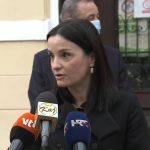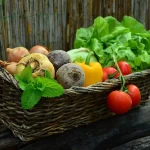The Agriculture Ministry and the World Bank cooperated on the STARS project, and the agreement on project cooperation was signed in October 2018.
Analyses, studies and guidelines made during the project have thus been significantly used also in making a draft agricultural strategy for the period until 2030, which has been put to public consultation, and in making a national aquaculture development plan for the period 2021-2027. Both documents are aimed at enhancing the sectors’ competitiveness and adapting them to current conditions.
Numerous domestic and foreign experts, sector stakeholders, employees of the Agriculture Ministry and other Croatian institutions and universities cooperated on the project, with Vučković noting that the start of work on the project had coincided with debates about the future of the EU’s Common Agricultural Policy, which will affect financing priorities and development of agriculture in all member states.
The project served to reexamine the situation and needs of the Croatian farm sector, as well as the measures that are being implemented, and its documents will be used in deciding how the roughly five billion euros intended for Croatian agriculture will be used, Vučković said.
Great chances for development of Croatian farm sector
Project coordinator Svetlana Edmeades of the World Bank said that the World Bank strongly believed that Croatia had great chances for the development of its farm sector.
Farm producers have central place in the project, which identifies as national strategic goals an increase in productivity and in the resilience of farm production to climate change, stronger competitiveness of the agricultural and food sector, revival of rural economy and improving living conditions in rural areas.
Edmeades underlined the importance of knowledge and innovations, noting that the development of Croatia’s agriculture should be green, resilient and inclusive, which includes, among other things, production of organic food, sector resilience to shocks, as well as greater involvement of smaller producers in existing value chains.
She said the project achievements were a number of reports that should serve as guidelines for the ministry and farm producers towards a green, resilient and inclusive agriculture.
The World Bank official said that the analyses were expected to significantly contribute to the government’s programme with regard to specific targets in the farm sector, in the making of a national agricultural and rural development strategy, participation of agriculture in the national recovery and resilience plan, and national strategic planning within CAP.
Value of agricultural production to be raised to HRK 30bn by 2030
State secretaries Tugomir Majdak, Zdravko Tušek and Šime Mršić presented the draft agricultural strategy for the period until 2030 and the national plan for the development of aquaculture in the period 2021-2027.
The officials said that the projected effects of the strategy until 2030 were an increase in labour productivity of 60% and the consequent increase in the value of farm production to HRK 30 billion, for which funds in the amount of €7.5 billion were envisaged.
This should be achieved, among other things, by a 35% increase in the number of locally bred fattening pigs, a 20% increase in cattle breeding, expanding areas under permanent crops by 5,000 hectares and areas where crops are grown under glass by 500 hectares, a 20% increase in the share of the food industry in GDP and a 30% increase in the number of producers in short supply chains.
The national plan for the development of aquaculture in the period 2021-2027, which is being made, will put emphasis on stronger competitiveness and the creation of 15% more jobs in the rural and coastal economies in the aquaculture value chain, including an increase in total production volume of 30%, a 35% increase in added value in the processing of aquaculture products, and an increase in the average annual consumption of aquaculture products per capita by as much as 50%, the Agriculture Ministry said.
For more about politics in Croatia, follow TCN’s dedicated page.











